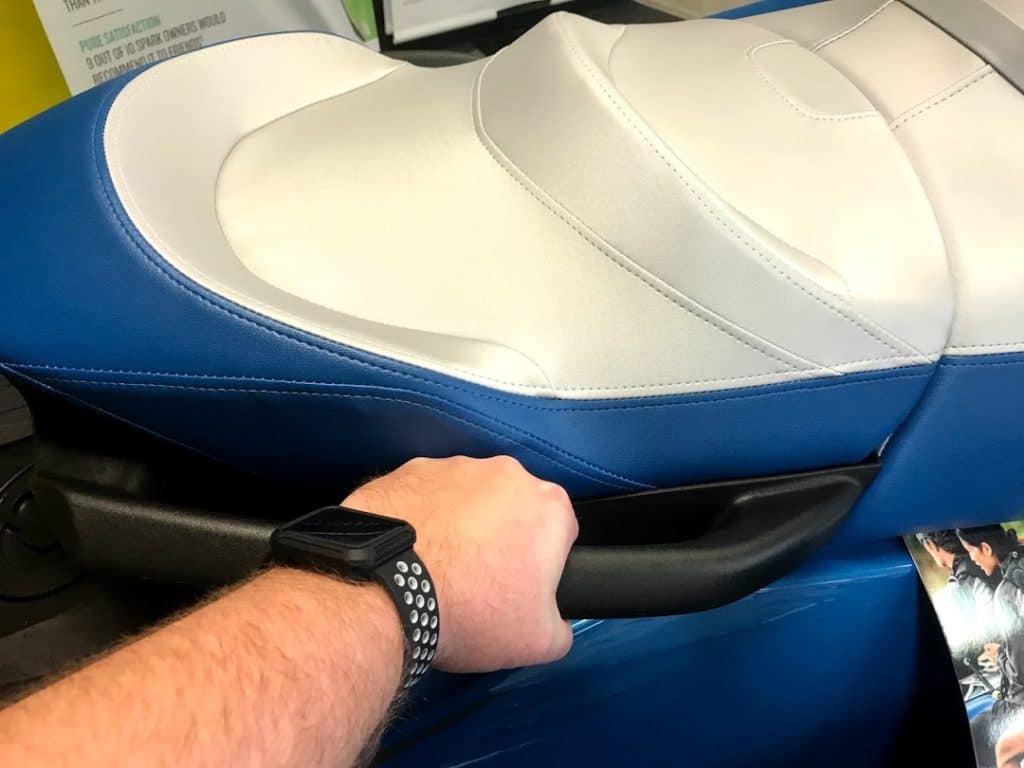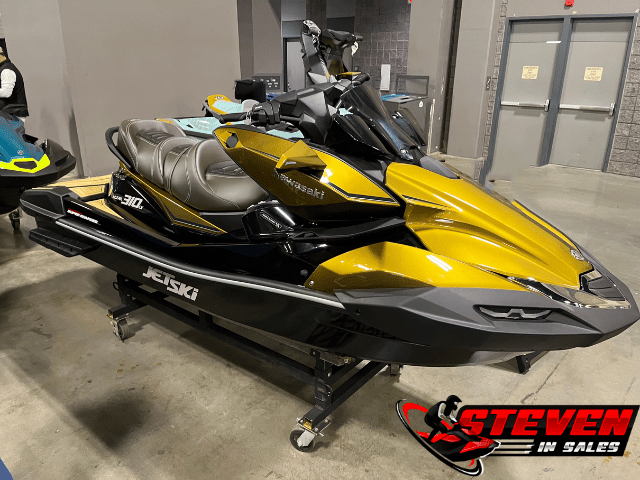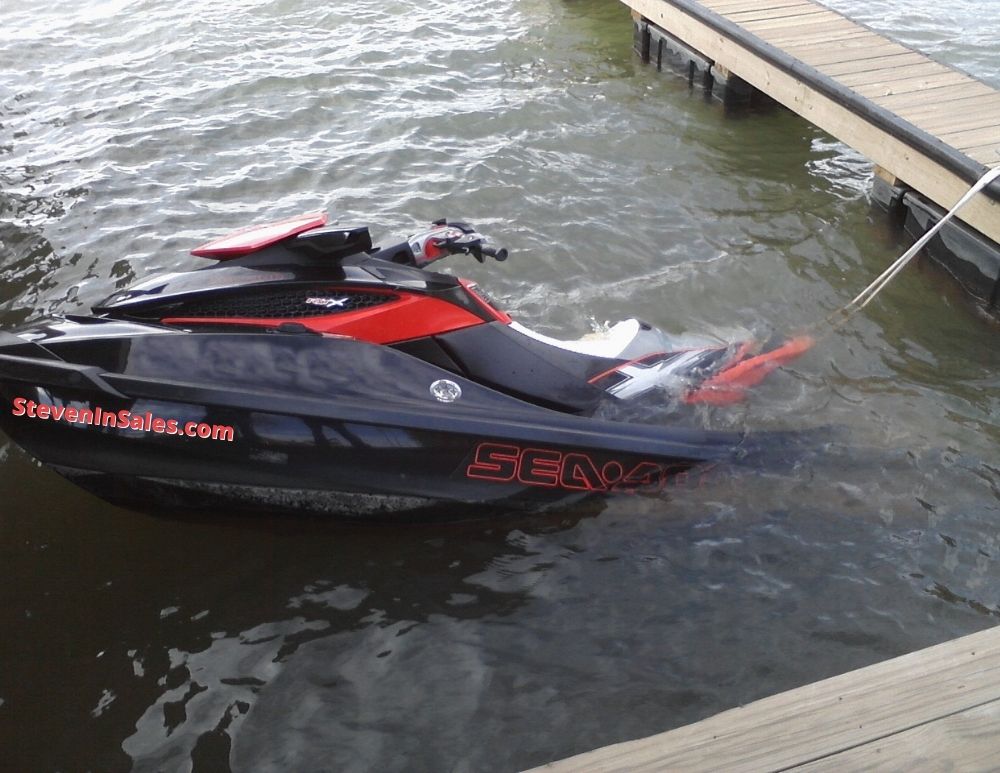A watercraft is the closest many of us will get to a motorcycle without as many dangers that come with a motorcycle. It’s a unique experience, often with power and speed found in supercars.
It’s no wonder more people keep joining the sport or testing it out by renting a few machines.
As the more people join, they may wonder what the MAX capacity a PWC can hold? Are they and the passenger too heavy? What about the gear they need to carry?
The capacity on most PWCs ranges from 350 to 600 pounds! There’s a lot more to consider, so let’s break it down.
Why does It matter?
I’m often surprised by other riders being so care-free with this max capacity threshold. It’s there for a reason and not a suggestion!!!
Here is why you should not go over these numbers:
- The watercraft becomes unstable and more tippy.
- The watercraft is harder to steer and control.
- You’re more likely to get hurt getting on and off the watercraft when over the max limit.
- The craft could sink, especially if you keep flipping it.
Greater Chance To Flip
Being over the weight limit means it’s more likely to flip over, or it can sink.
A jet ski that flips over or sinking raises the chances of the engine hydrolocking or getting damaged! (Fixing a hydrolocked engine is expensive – it requires a lot of oil changes so long the engine didn’t blow)
More Dangerous
If you do get the machine out on the water while it’s being over the weight limit, taking a turn too sharp will cause you to roll over.
You can also lose control of the steering, causing you to get hurt or damage your PWC.
Falling off a jet ski doesn’t mean it will turn around and come back to you, either.
Weight Limit Chart
| Manufacturer | Model | Weight Cap. |
|---|---|---|
| Sea-Doo | 2 UP Spark | 352 lb |
| Sea-Doo | 3 UP Spark | 450 lb |
| Yamaha | EX | 485 lb |
| Sea-Doo | 1 UP Trixx | 352 lb |
| Sea-Doo | 3 UP Trixx | 450 lb |
| Yamaha | EX Sport | 485 lb |
| Yamaha | SuperJet | 1 Person |
| Yamaha | EX Deluxe | 485 lb |
| Sea-Doo | GTI | 600 lb |
| Sea-Doo | GTI SE | 600 lb |
| Yamaha | VX | 530 lb |
| Kawasaki | STX-16F | 496 lb |
| Kawasaki | SX-R | 1 Person |
| Yamaha | VX Deluxe | 530 lb |
| Sea-Doo | GTI SE | 600 lb |
| Yamaha | VX Cruiser | 530 lb |
| Yamaha | VX Limited | 530 lb |
| Kawasaki | Ultra LX | 496 lb |
| Yamaha | VX Cruiser HO | 530 lb |
| Sea-Doo | Wake | 600 lb |
| Yamaha | VXR | 530 lb |
| Sea-Doo | GTR | 600 lb |
| Sea-Doo | GTI Limited | 600 lb |
| Sea-Doo | GTX | 600 lb |
| Sea-Doo | GTR-X | 400 lb |
| Yamaha | FX HO | 530 lb |
| Sea-Doo | RXT | 600 lb |
| Yamaha | FX Cruiser HO | 530 lb |
| Sea-Doo | GTX | 600 lb |
| Yamaha | GP | 530 lb |
| Sea-Doo | Wake Pro | 600 lb |
| Yamaha | FX SVHO | 530 lb |
| Kawasaki | Ultra 310X | 496 lb |
| Sea-Doo | RXP-X | 400 lb |
| Sea-Doo | RXT-X | 600 lb |
| Kawasaki | Ultra 310X SE | 496 lb |
| Sea-Doo | GTX Limited | 600 lb |
| Yamaha | FX Cruiser SVHO | 530 lb |
| Sea-Doo | Explorer | 600 lb |
| Yamaha | FX Limited SVHO | 530 lb |
| Kawasaki | Ultra 310LX | 496 lb |
For more info from each manufacturer, please click on them below:
Please don’t confuse the weight of the watercraft with its “weight limits”. The weight of the watercraft is how much it weighs, but the weight limits is how much it can hold.
All Gear And Riders
This weight max limit includes all gear and rider weights combined.
If everyone and everything on the PWC weighs more than the max-weight-limit, the watercraft is not safe and risk sinking, damage, or personal injury.
Seating Vs. Limits
Even if your PWC is a 3-seater, it doesn’t mean you can ignore the max weight limits.
The max limits include the weight of all the riders, and if all 3 people’s weight is more than the max limits, you can’t ride it safely.
The same is true the other way around, even if 4 people are under the max weight, you CAN NOT have 4 people on a 3-person limits craft.
Water patrol takes the seating number very seriously, especially when it comes to pull sports.
It’s also a bit tricky at times because many PWCs look like 2-seaters but fits 3 people. The honest truth is that most 3-seaters fit two normal-sized adults, and a 2-seater fits one normal-sized adult.

I’m a 240-pound man, and I feel very confident riding a 3 or 2 seater spark by myself.
I’ve even ridden two of me on my 3 seater spark, it’s possible, and no one fell off.
But I would not dare put any more weight beyond that. I’ve also ridden 2up on a 3 seater GTI and had no issues with that; it felt a lot more stable than the 3-seaters Spark, that is certain.


Does weight limit also count the weight you are towing such as tubes?
Yes, you need to stay under the weight limit, even counting tubes and people. https://www.steveninsales.com/jet-ski-seating-capacity/
I’m 315lbs. I’ve been able to get onto a jet ski in shallow water using the step on the back, but I’ve never had to do it in open water. My question is, on a 3up Spark with a step, would trying to get on it in open water cause it to sink in the back or would it be able to support me pulling myself up into it.
Great articles by the way!
I’m 240 and when I try to get on a 3up Spark from the open water it’s quite hard. The rear end does take a dive and getting up is only half the battle as you have to balance it when getting up. It requires a lot of upper body strength because you’re soaking wet. The bigger models like the GTI’s or GTX are less of an issue, those Sparks can be tricky.
Does the weight limit (ie. 600 on RXT300) include the weight of the fuel? I thought it was just humans and cargo.
The weight limit is for human and cargo weight.